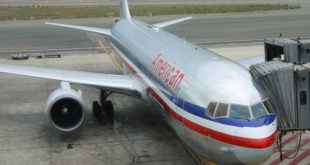The latest in crazy-in-the-sky news is that a passenger on a Hawaiian Airlines flight was arrested by the FBI for interfering with the flight crew.
And by interfering with the flight crew, I mean, he actually bit a flight attendant.
Supervisory Agent in Charge, Matthew MacDonald says Aumoeualogo is accused of interfering with a flight crew, a crime with a statutory maximum penalty of 20 years imprisonment.
He is accused of being belligerent on the flight, biting a flight attendant, and threatening the flight crew.His initial appearance has not been set as of this time.
The first thought I had when I read that he bit the flight attendant was:
(Warning, graphic zombie violence).
I prefer this type of Hawaiian-related-zombies.
“Interfering with the Flight Crew”
But what does “interfering with the flight crew” mean, and why is the FBI involved?
According to KHON2.com, his charge (and potential penalty) is:
Violating Title 49 USC 46504 carries a statutory maximum penalty of 20 years imprisonment.
While “interfering” sounds like someone merely prevented the flight crew from doing their jobs. It’s actually a lot more severe than that.
It is when they interfere with their duties through assault or intimidation:
by assaulting or intimidating a flight crew member or flight attendant of the aircraft, interferes with the performance of the duties of the member or attendant or lessens the ability of the member or attendant to perform those duties, or attempts or conspires to do such an act
There is a little bit of a legal nuance here, though. While we generally use “assault” to mean hurting someone (I was assaulted by that bird that flew into my face), it actually means to cause them fear that they will be intentionally injured.
It is a threat, and a little redundant with intimidation.
An assault is carried out by a threat of bodily harm coupled with an apparent, present ability to cause the harm.
The actual harm is called battery, thus the phrase assault and battery. Assault usually goes hand in hand with battery unless the crime happens without the victim foreseeing it (getting hit from behind, getting attached in the dark, etc).
In this case, the passenger’s biting could be seen as intimidation for future biting. This, coupled with his belligerent nature makes sense for this statute, and this is usually used when physical attacking happens too.
Passengers charged under this face a maximum charge of 20 years in jail, which can be expanded in cases of a dangerous weapon.
So aside from the obvious reasons, I strongly suggest you don’t attack a member of the crew.
 Le Chic Geek
Le Chic Geek





One comment
Pingback: Do You Want to Smell.. Like United? and More - View from the Wing